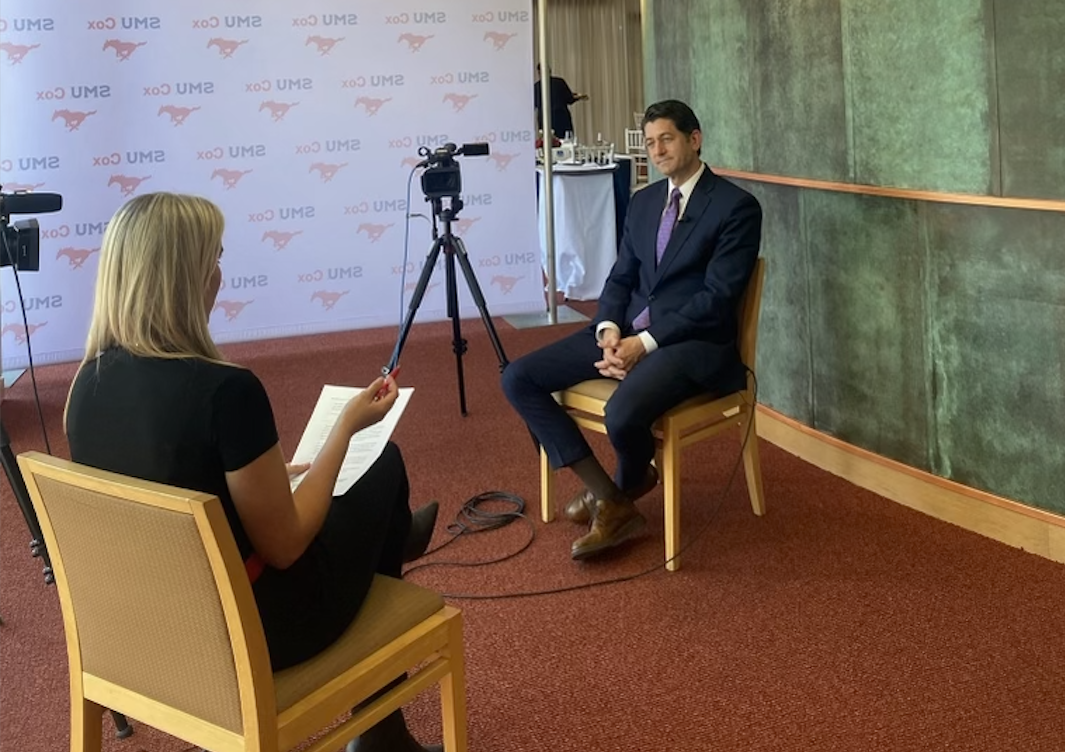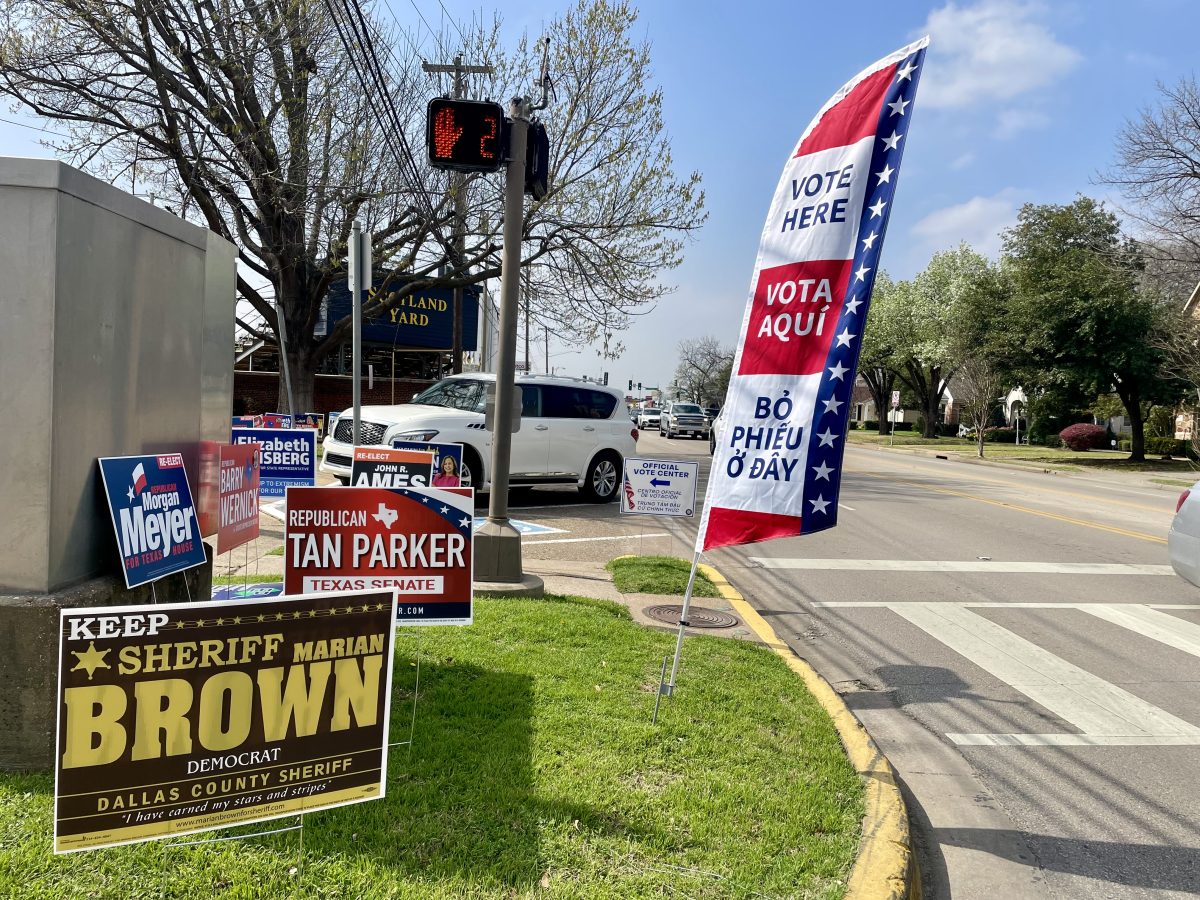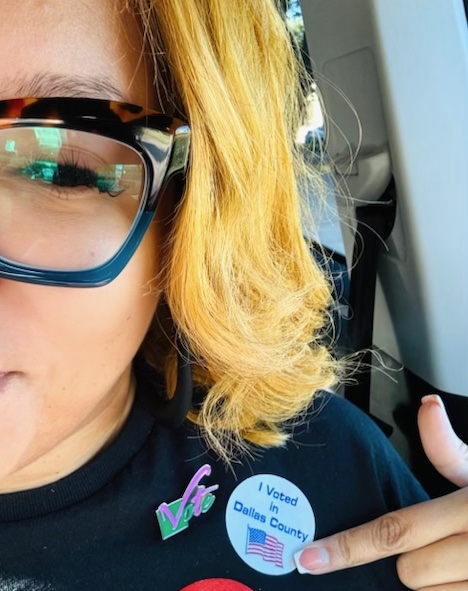Charlotte Huffman is an SMU alumna whose investigative reporting is making an impact in Dallas; her stories are catching the attention of elected officials and changing laws.
Huffman does not just want to tell you what happened, she wants to tell you why it happened. With a penchant for data analysis and an insatiable curiosity, Huffman is uncovering stories nobody else is even looking for.
“I believe that investigative journalism is something that we must continue to do because we must continue shining a light on the areas that many prefer to be kept dark,” Huffman said.
In Huffman’s recent investigation that looked into the poor quality of nursing homes in the state of Texas, she met with about a half a dozen advocates in the Dallas area, who had concerns about the safety of the senior population within these nursing homes.
“Texas ranks among the worst when it comes to nursing home abuse,” Huffman said. “And I wanted to figure out why.”
After months of analyzing data within thousands of government documents, Huffman found her answer.
“Our investigation revealed that one reason why is that nursing homes in Texas are hiring people with a long history of abuse,” Huffman said. Her reporting uncovered a loophole in state regulations that overlooks violent and criminal pasts of nursing aides. “So it’s really no surprise that the state of Texas has an abuse rate four times of that of the national average.”
Her report gained the attention of lawmakers who are now promising to get rid of those loopholes and protect the elderly.
Courtesy of Mark Muller
The positive changes that Huffman has made with her reports are a result of her inquisitive nature. Huffman believes that the more questions you ask the more answers you will receive.
“Just never stop asking one simple question which is why,” Huffman said.
Growing up, she never envisioned herself as an investigative reporter, but her curious nature led her to the job. She believes it is her personality that makes her a natural fit for investigative journalism. Huffman describes herself as very curious and also very thorough.
Huffman attended SMU and graduated with a degree in Broadcast Journalism and a minor in Spanish. During her time at SMU, she was involved in SMU’s student-run television show, The Daily Update. After she graduated she started working as a reporter for television stations throughout Texas. While working as a general assignment reporter in Tyler, Huffman recalls turning in lengthy three-minute-long stories daily.
“In this industry for a daily turn that’s way longer than it should be,” Huffman said. “It was just my nature. I naturally gravitated towards trying to find the investigative edge or the investigative angle to these daily stories.”
Mark Muller, the Chief Photographer for WFAA, has worked with Huffman on all of her investigations. He recalls Huffman’s expertise in data analysis as one of her strengths that gives her stories the unique investigative edge that she had been looking for.
“Charlotte does a lot of data crunching. It is not something that the other reporters in the unit before her did, so it brings another aspect of journalism to us,” Muller said. “It’s great if you are going after someone in government or business because having those stats really makes your argument more valid.”
The other strength of hers according to Muller is her organizational skills. He jokingly calls her a beautiful mind because of her endless bubbles charts and post-it notes.
After three years of working as a reporter, Huffman transitioned into investigative reporting with a new job in North Carolina at a CBS affiliate. There, Huffman won both an Emmy and an Edward R. Murrow Award for her investigation “Poison in the Water,” which exposed how regulators in North Carolina ignored evidence of cancer-causing chemicals in the city’s water supply. This report led to legislative change in the state.
Huffman did not uncover this case without attempts from government agencies to stall her progress. She recalls a back and forth negotiation with The Department of Environmental and Natural Resources for documents that lasted about two months.
“I believe that they stood in my way and they did not want me to have these records and perhaps they thought if they put up enough road blocks and dragged this on long enough that maybe I’d just go away,” Huffman said. “But I guess they didn’t really know me.”
To this day, Huffman’s investigations are met with resistance. Huffman has to deal with communications directors who often use the excuse that the records in which she is looking for do not exist.
“Today I’m still fighting for those records, it’s just another story and another government agency,” Huffman said. “I’d say that 75% of my requests for information are censored or rejected all-together by communication directors whose job it is to avoid negative publicity for the local, state, or federal agencies they represent.”
Courtesy of Mark Muller
In 2015, Huffman returned to Dallas to work as an investigative reporter for WFAA Dallas/Fort Worth. Her first investigation for the station resulted in Governor Abbott signing the “passing the trash” bill. Huffman’s success is due to her passion and belief in the power of investigative journalism.
“We must be willing to question the conventional wisdom and prevailing narrative of the day,” Huffman said. “When our nation’s leaders lie, we must expose the negligent state regulators and the businesses because in the end if we can shine a light on wrongdoing then we can become a more informed world.”

















